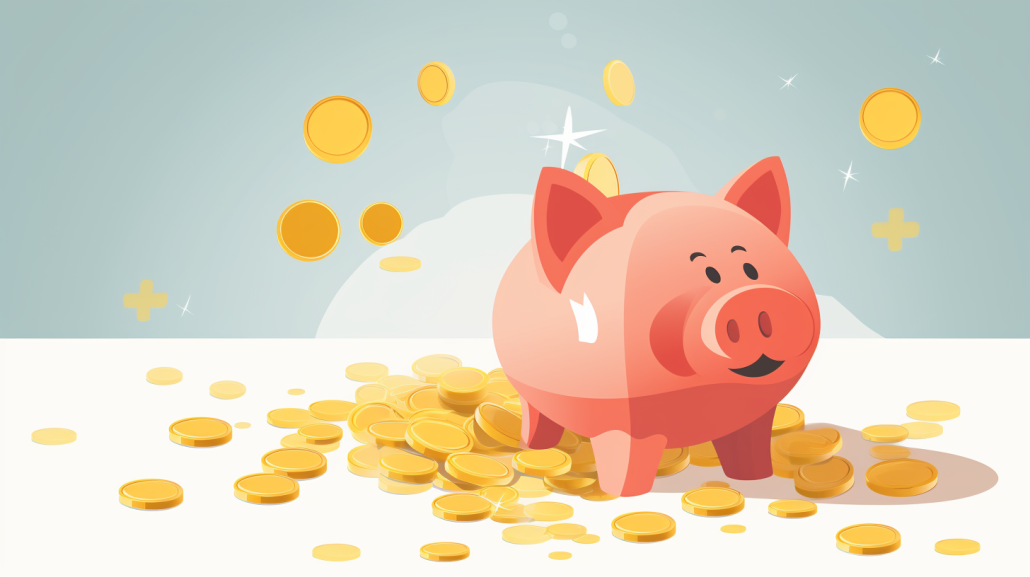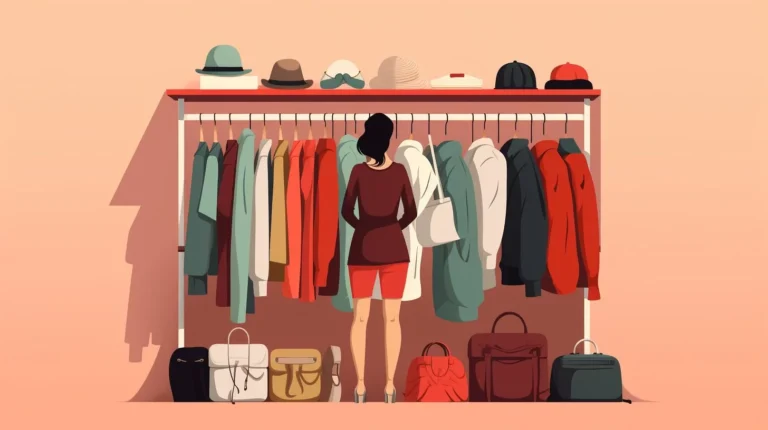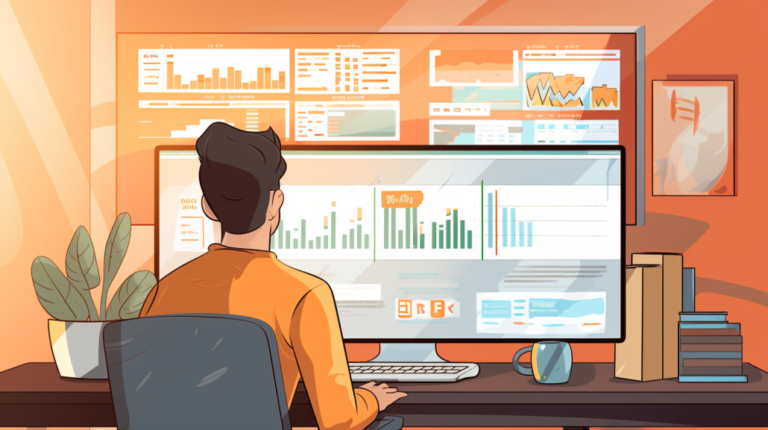Budget Strategies for Paying Off Debt

Feeling as if you’re buried under a mountain of debt can certainly be overwhelming, right? Trust me when I say, you are not the only one facing such a challenge. Through diligent research and implementing various strategies, I’ve uncovered some effective ways to conquer this financial Everest.
In this blog post, we’ll journey through practical budgeting tips and payoff tactics that could send your debts packing for good. So here’s an invitation – let’s embark on this liberating journey towards financial freedom together!
Key Takeaways
- A budget helps control spending and pay off debt. Divide money into needs and wants. Spend more on what matters to you.
- There are different ways to pay off debt. These include the Debt Snowball Method, the Debt Avalanche Method, or using a mobile app.
- Extra payments help clear debt faster. Use bonus money, cut back on costs, get a side job or sell stuff for extra cash.
- Keep good habits like not using credit cards too much, checking your budget often and saving for emergencies can keep people out of debt in the future.
Understanding Debt

Debt, an obligation resulting from borrowing, can take various forms such as credit card balances or student loans. It’s critical to grasp its impact on our financial lives including the toll it takes on our credit score and ability to save.
Knowing different types of debt – secured, unsecured, revolving and non-revolving is also key as they each carry unique terms and effects. And while buy now pay later plans may seem tempting, they too are a form of debt that needs careful consideration.
Types of Debt
I want to talk about the various types of debt. It’s good to know them because they all play a role in our financial lives.
- Credit Card Debt: This is when you owe money on your credit card.
- Student Loan Debt: This is what you owe after going to school.
- Mortgage: This is the money you have borrowed to buy a house.
- Car Loan: You get this loan when you want to buy a car but don’t have all the cash at once.
- Personal Loans: These are loans that don’t fit into the other categories.
- Medical Debt: This comes in when you can’t pay for your health care costs.
The Impact of Debt
Being in debt can make life hard. It can stop you from reaching financial goals. Debt can also lower your credit score. This makes it tough to get loans or buy a home later. You may feel stressed out because of the money you owe.
Not only that, but interest rates add up over time and make every dollar count even more against you! Don’t forget about how large debts like mortgages, car loans, and student debt affect life too–they all take away hard-earned income every month and leave less for other needs and wants.
This is why getting rid of debt is crucial to living well with enough money to enjoy life!
The Importance of Budgeting

Budgeting plays a pivotal role in personal finance. It’s not just about restricting what you spend; it’s about making your money work for you, aligning your spending with values that matter to you.
Let me introduce the ‘You Only Live Once’ budget – this strategy emphasizes prioritizing happiness and experiences, but still keeps finances on track! And don’t forget digital cash envelope budgeting: dividing your income into categories right at the start of each month ensures all expenses are covered without dipping into savings or credit.
Aligning Spending with Values
We all love things that make us happy. But, it is wise to spend money on what we value most in life. I learned this trick when paying off my own debt. Stephanie Stiavetti and Michelle Schroeder-Gardner are good examples here! These women followed their values while spending money which helped them get out of debt fast.
This can work for you too, no matter how much you earn or owe right now! Aim to use more of your cash on needs rather than wants as a first step towards being free from debt. You might surprise yourself by finding joy in the small things instead of big ticket items that lead to more debts.
Creating a ‘You Only Live Once’ Budget
To make a ‘You Only Live Once’ budget, you must plan. Put money aside for fun things. This is important. Life should be enjoyed now, not just when debt is fully paid. Some of your pay can go towards the things that make you happy like trips or hobbies.
But don’t forget to keep saving money too! It’s possible to have fun and meet your payoff goal at the same time with good planning.
Using Digital Cash Envelope Budgeting
You can use digital cash envelope budgeting to pay off debt. In this type of budget, you set aside money for different goals. Your saving and spending have clear limits.
Thanks to the technology we have today, there are many apps for this method. These help you see where your money goes. Now it’s easier than ever to stick to a plan! You make smarter choices about how you use your dollar with these tools in hand.
This way of budgeting helps stop overspending too. How? By using only the cash in each envelope or class for buying items or paying bills related to that class until it runs out! It gives a sense of control over finances and improves decision-making skills in money matters.
Effective Debt Payoff Strategies

The Debt Snowball Method focuses on paying off your smallest debts first, to build motivation and momentum as you move towards larger ones. The Debt Avalanche Method is all about tackling high-interest debt; it involves focusing extra cash on your highest interest debts initially then gradually descending to those with lower rates.
But if multiple repayments are making things tough, Debt Consolidation could be a lifeline – combining all of your various loans into one sum can simplify the process and reduce stress.
Now imagine doing that without lifting a finger? That’s where Debt Replacement Apps come in handy; they manage all steps by replacing existing high-interest debt with lower-interest options automatically!
The Debt Snowball Method
The Debt Snowball Method is a great plan to pay off debt. First, you list all your debts from smallest to largest in amount. Pay the smallest one first but keep paying the minimum on everything else.
It’s so fun! As you check off each debt, you will feel like a champ. With this method, wins happen quick and keep your spirit high for the long haul of knocking out bigger bills next in line!
The Debt Avalanche Method
Here is one easy way to clear your debt. It’s called the Debt Avalanche Method. This plan charges you less money over time. How does it work? You pay a small part of all your bills first.
Then, put any extra cash toward the bill with the highest interest rate. Doing this helps cut down how much interest you have to pay in total. The Debt Avalanche Method saves more money than other plans like the Debt Snowball Method.
If it is tough for you, there are credit counseling agencies that can help too! They can talk with companies so that you can pay back less money and finish paying off faster.
Debt Consolidation
Debt consolidation is a smart way to handle debt. It puts all your debts in one place. This makes it easier to pay off the money you owe.
You can ask for help from nonprofit credit counseling agencies. They can talk about ways to make lower payments. You set up a plan with them and pay back what you owe over time.
Utilizing Debt Replacement Apps
Debt replacement apps can help a lot. These apps keep track of what you owe and plan how to pay it off. They give advice on financial decisions so you don’t dig a deeper hole for yourself.
Some even offer tools to consolidate debt, which means putting all your debts together into one payment with a lower rate. It’s like having a personal finance helper right in your pocket! And best of all? Many of these apps are free or low-cost! You see, using them is making the most out of every dollar!
Tips for Accelerating Debt Payoff
To speed up your path to becoming debt-free, it’s crucial to make extra payments towards your owed balances whenever possible. Think about getting a side hustle to increase income; online surveys or freelance writing can be a good start.
You might also want to examine and lower daily expenses – every dollar saved is another you can put towards tackling your debt. Don’t gloss over the potential benefit of selling any unwanted items laying around either; that’s more money in your pocket for reducing debts.
Making Extra Payments
Paying off debt can happen faster by making extra payments. Here are some ways to do it.
- Find free money: Use windfalls like a tax refund or work bonus for your debt.
- Cut back on spending: Lower money spent on wants and put that towards extra payments.
- Start a side hustle: Make more money by working part-time jobs or selling things you no longer need.
- Use an app: Debt payoff guides can help to plan, track and make payments in one place.
- Get professional help: Credit counseling agencies can give advice on how to make the most of each dollar.
- Stay hopeful: Keep your spirits high even if progress seems slow at first.
- Track your success over time: Choose milestones that matter to you and celebrate when you reach them!
Increasing Income with Side Hustles
Taking on a side hustle is a smart move to boost your income. Jobs like online tutoring, dog walking or freelance writing can put extra cash in your pocket. With this extra money, you can pay down your debt more quickly.
Don’t worry if you don’t have much spare time for a second job. You could even try selling handmade crafts or offering home cleaning services. Every bit of added income helps get rid of debt faster.
So go ahead and turn that hobby into an earning tool!
Lowering Expenses
Paying off debt is easier when you lower your expenses. Here are some ways to do this:
- Cut out non – essential spending. Stop buying things you do not need. Luxury items and costly services can wait.
- Switch to cost – saving vendors. Look for cheaper cable services, phone plans, or insurance rates.
- Use energy wisely at home to cut down utility bills.
- Eat out less. Cook meals at home instead.
- Refrain from impulse buying. Always stick to your shopping list.
- Sell items that you no longer need or use.
- Walk or bike instead of using the car all the time.
Selling Unwanted Items
Old toys, unused furniture, or clothes you don’t wear are all things you can sell. Use online platforms like eBay or hold a yard sale. This not only clears up space in your home but also puts extra money in your pocket.
Invest that cash straight to paying off debt! By repeating this process with different items over time, it becomes a handy tool for lowering your debt faster. Give it a shot today; even small gains matter when battling debt!
Maintaining Good Financial Habits

Getting on top of your financial game is a continuous process, not a one-time event. Putting consistent measures in place to curb credit card use, reviewing your budget regularly for adjustments, and building an emergency savings account are practical steps towards maintaining good financial habits that keep you out of debt.
Let’s explore these living strategies – they will change the course of your financial future!
Stopping Credit Card Usage
I stopped using my credit cards. You can do the same. It is not easy, but it is worth it in the end. Credit cards tempt us to spend money we don’t have. They make us believe we can afford things that our cash just won’t cover.
Cutting back on credit card use helps me stick to my budget. I only spend what I have in cash or in the bank now. It forces me to think more about each buy I plan to make for sure! So, pull those plastic beasts from your wallet or purse and put them away safe and sound! The less you see them, the less you will want to use them.
Regularly Reviewing and Adjusting Budget
I always make it a point to check my budget. It helps me stay on top of my money game. Here are some steps I follow:
- I sit down once a week and go through all my spending.
- I keep an eye on where my money is going.
- If one area costs too much, I cut back there.
- If I find extra dollars, they go toward paying off my debt.
- Whenever my income changes, so does the budget.
- Small changes are easy to make right away.
- Big changes might take more time, but they come from careful thought.
- Even if times get tough, I stick to the budget.
Building an Emergency Savings Account
Having money set aside for a crisis is key. It’s called an emergency savings account. We don’t know what the future holds, so it’s smart to save some cash just in case. Aim to keep at least three months’ worth of living costs saved up in this account.
This way, if something bad happens like losing your job or having to fix your car, you can use this money instead of going into debt. Apps like Financial Peace University and EveryDollar Budget App can help make saving easier too!
Which Budget App is the Most Effective for Paying Off Debt?
When it comes to paying off debt, budget apps for managing finances are essential tools. Among the many options available, one app stands out for its effectiveness – Mint. With its comprehensive features, Mint allows users to track expenses, set budgets, and monitor debts, making it a top choice for those looking to tackle their debt head-on.
Getting Professional Help
If tackling debt feels too overwhelming, remember there are credit counseling agencies ready to help. They can offer valuable advice and guide you towards effective financial strategies.
Getting professional assistance could make the difference between sinking further into debt or swimming freely on your journey to becoming financially independent.
Credit Counseling Agencies
I chose Credit Counseling Agencies to help me with my debt issues. Here’s what I learned:
- Credit counseling agencies speak for debtors. They can talk with credit card companies and others I owe money to.
- With their help, I could get lower payments. They made a plan for me to pay back my debt.
- They not only worked on lowering my bills but also taught me how to budget. This will stop me from falling into the same trap again.
- They pushed me to start an emergency savings account too. Now I would have money set aside if ever a surprise cost showed up.
- The agency didn’t just focus on cutting costs, they also talked about making more cash. They gave me ideas for side jobs or ways to make money from hobbies.
- Although they were very helpful, they warned about the possible bad sides of debt relief options.
- A last note is that the agency stayed truthful and open about charges linked with their services.
Conclusion
Paying off debt can be a tough road. But, with a sound budget plan, it need not be scary. Applying these tips will help you gain control of your money and life again. Remember, every little step towards freedom from debt counts!
FAQs
1. What are some budget strategies to pay off debt?
Budget strategies for paying off debt include spending based on your values, keeping a small business out of financial hole and using Ramsey+ tools like “The 7 Baby Steps” or the Zero percent balance transfer APR tool.
2. How can I make the most of every dollar to manage my credit card bill?
You can manage your credit card bill by focussing on self-reliance, cutting down luxury cars and other non-essential purchases, and ensuring a low credit utilization ratio.
3. Can NerdWallet’s “Smart Money” podcast help me understand more about personal finance questions?
Yes it can! The podcast discusses diverse financial topics including ways to reduce student loan debt in America and how racial wealth gap impacts society.
4.UNK”>Where UNK”>can I get resources that will teach me about managing my debts?
Ramsey network offers plenty of resources – From Paycheck to Purpose Book, Debt management plans outlined in The Total Money Makeover Book as well as Ramsey Education for Schools & SmartDollar Financial Wellness programs designed towards empowering you with sound money practices.
5.What does it mean if I have maxed-out credit cards?
Maxed-out credit cards imply a high use of your available borrowing limit which could lead to much higher interest rate payments thus further increasing your debt balances over time.
6.Can having someone review my finances help clear my doubts?
Yes indeed! You may work with Advisory Groups or Executive Coaching providers who cater personalized solutions aligning best with individual needs through their Entrepreneurship Elite program taking steps toward improvement.






